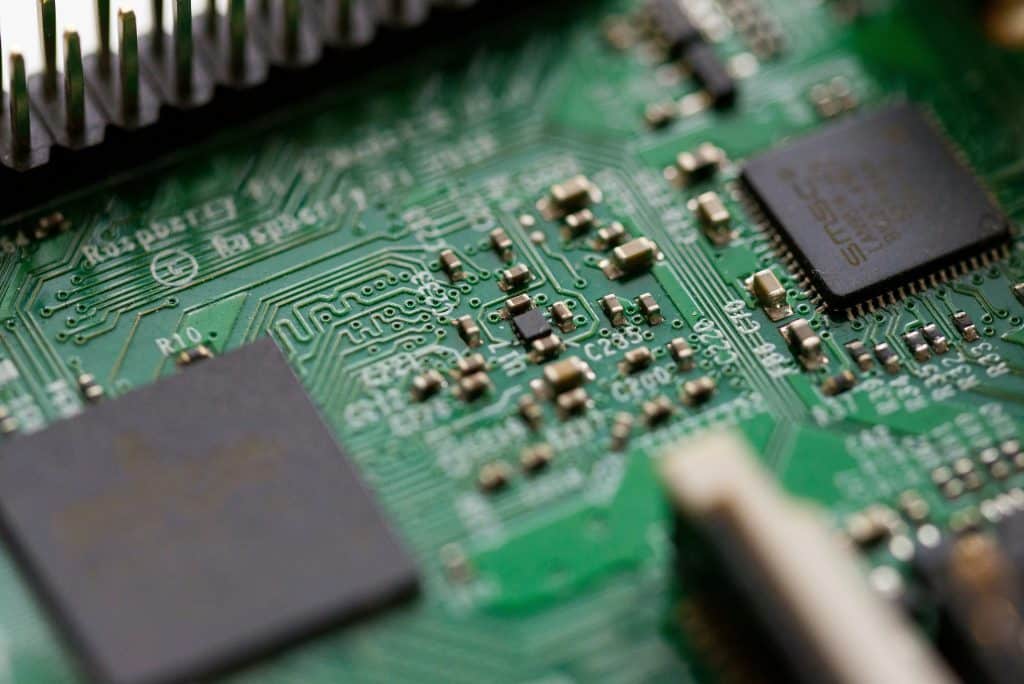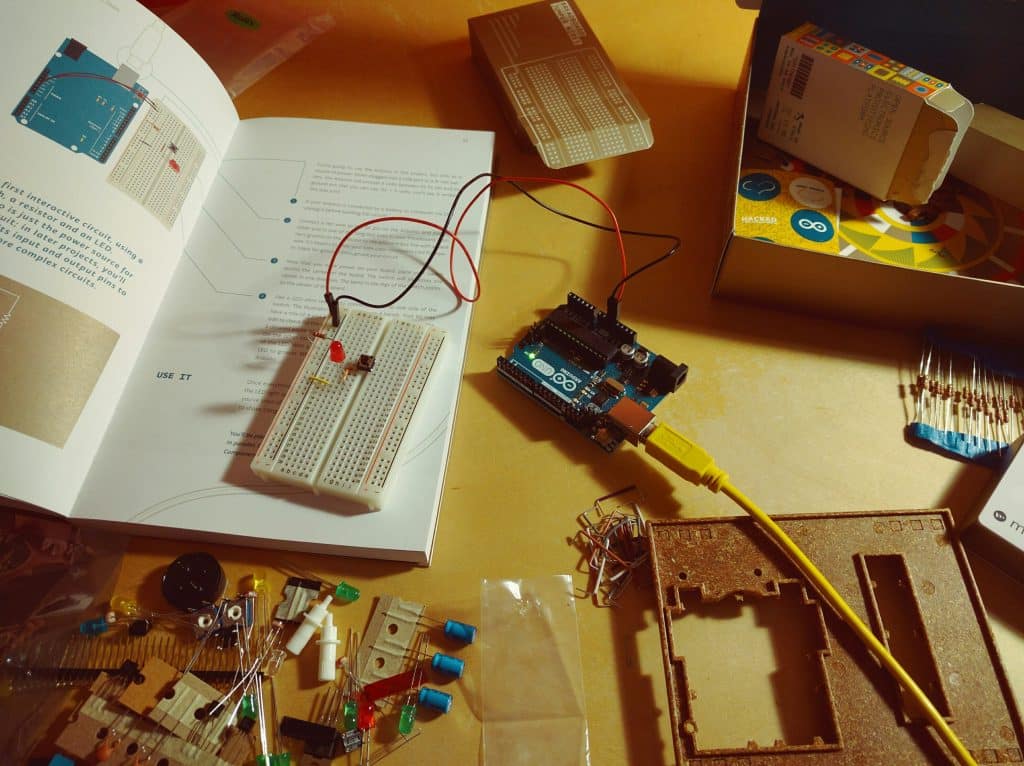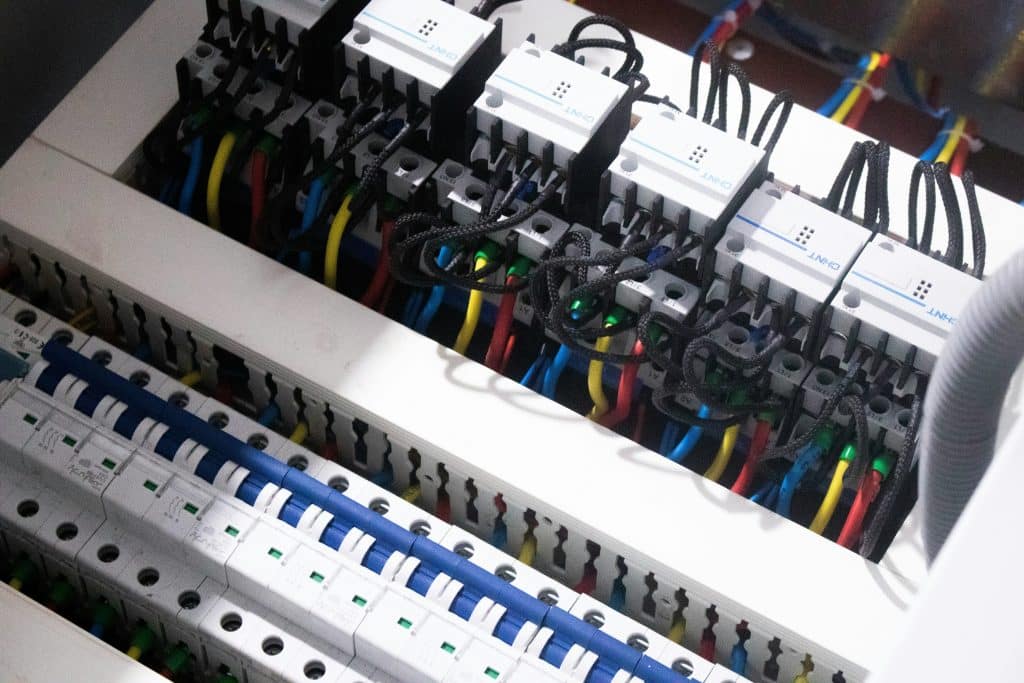Electrical and electronics engineering
Specialty
Engineering
Degree
Bachelors
Language
English Language
Duration
4 years
Summary
Electrical and Electronics Engineering is an engineering discipline that focuses on studying and applying the principles of electricity and electronics in a variety of applications. This specialization is of great importance in the current era, as it plays a prominent role in the development of technology and the advancement of various industries.
The role of electrical and electronics engineers revolves around designing and developing electrical power systems, communication systems, electronic devices, renewable energy, and many other fields. Through their diverse applications, these specializations contribute to improving and developing systems and technologies that have a significant impact on daily life and various industries. Additionally, electrical and electronics engineering plays an important role in areas such as sustainable energy and climate change solutions. It works on developing new techniques to use energy more efficiently and reduce harmful emissions, contributing to building a sustainable and environmentally friendly future.

Tasks of an Electrical and Electronics Engineer
The role of an engineer in electrical and electronics engineering projects is essential to ensure their efficient and professional implementation. It requires performing a set of necessary tasks that contribute to the complete success of the project. Some of the most important tasks include:
- Designing electrical and electronic systems for buildings and facilities using design software such as AutoCAD Electrical.
- Taking into consideration the specific requirements of each project and ensuring their compatibility with integrity and quality standards.
- Taking responsibility for selecting suitable electrical equipment and materials that comply with the standard work specifications.
- Supervising the implementation of electrical installations and ensuring that they are executed properly according to approved plans.
- Conducting necessary tests to ensure the quality of electronic and electrical installations.
- Dealing with any technical or implementation problems that may arise unexpectedly during different stages of the project and finding solutions to them.
- Regularly communicating with the other engineering team, contractors, and clients to ensure smooth project execution.
- Using the latest technologies and innovations in the engineering field to improve project implementation.
Skills and Abilities Required to Study Electrical and Electronics Engineering
- The student should be capable of understanding and solving mathematical problems effectively.
- The student should have a good understanding of the fundamental subjects related to electrical and electronics engineering, such as physics and chemistry.
- Applying mathematical rules and equations to solve practical engineering problems.
- Working in the field of electrical and electronics engineering requires the ability to deal with unexpected problems and find innovative and efficient solutions.
- The student should be able to communicate effectively with other members of the engineering team and collaborate with them in problem-solving and achieving common goals.
- The student should be able to write engineering reports correctly to document their work and exchange information effectively with the rest of the team.
- Therefore, the student should have the ability to lead and manage the team effectively.
- The student should be capable of learning and using computer software used in the field of electrical and electronics engineering.
- Working in the field of electrical and electronics engineering requires attention to detail and the ability to work effectively under time pressure and deadlines.
- The student should be interested in keeping up with developments and innovations in the field of electrical and electronics engineering and benefiting from them in their work and skill development.

Electrical and Electronics Engineering Coursework
- Mathematics
- Differential and Integral Calculus
- Physics
- Mechanics
- Introduction to Electrical Engineering
- Electric Circuits
- Analog Electronics
- Digital Electronics
- Signals and Systems
- Analysis of Digital Circuits and Systems
- Power Systems
- Automation and Control
- Digital Communications
- Embedded Systems
- Power Network Technologies
- Signal, Audio, and Image Engineering
- Renewable Energy Engineering
- Electrical and Electronics Engineering

Advantages of studying Electrical and Electronics Engineering in Georgia
Studying Electrical and Electronics Engineering in Georgia offers several advantages that make it an attractive and ideal destination for students from around the world, especially those coming from Arab countries. Some of these advantages include:
- Georgian universities offer high-quality programs in the field of Electrical and Electronics Engineering that follow the latest technological advancements and provide comprehensive education.
- Georgia provides an advanced educational environment that enhances the learning process, collaboration, and effective communication between students and professors.
- Georgian universities have well-equipped technological facilities and laboratories with state-of-the-art technologies, facilitating practical experimentation and application.
- The educational environment in Georgian universities encourages students to interact and exchange experiences with professors and peers, enhancing their academic experience.
- Georgia offers various employment opportunities in diverse fields such as renewable energy, technology, and manufacturing, increasing the employment prospects for graduates.
- The cost of studying in Georgia is reasonable compared to some other European countries, making it an affordable option for students seeking high-quality education at a reasonable cost.
- The cultural and social diversity in Georgia allows students to explore different cultures, expand their knowledge, and establish new friendships.
- Georgian universities encourage research and innovation in the field of Electrical and
- Electronics Engineering, providing students with opportunities to participate in exciting and innovative research projects.

Top Universities for studying Electrical and Electronics Engineering in Georgia
- Tbilisi State University
- Tbilisi Technical University
- Ilia State University
- Georgian University
- Black Sea University
Ethics for Electrical and Electronics Engineers
- Engineers should be aware of their important role and what it represents to society.
- Following safety and security guidelines in designing electrical systems.
- Striving to provide engineering solutions that contribute to improving life.
- Staying updated on the latest technological advancements in the field of electrical engineering.
- Interacting with colleagues ethically and collaborating with them to achieve common goals.
- Electrical and Electronics Engineers should demonstrate honesty and transparency in all aspects of their work.
- Using critical thinking in problem-solving and utilizing research and analytical skills.
- Adhering to industry standards and local regulations in designing engineering projects.
Opportunities
Job opportunities for graduates
After graduation, many job opportunities are available for electrical and electronics engineers, as they can work in many fields and specializations, such as
- Work in telecommunications service providers.
- Develop and maintain network infrastructure.
- Design and implement wireless and wired telecommunications systems.
- Work in information technology and software development companies.
- Design and develop telecommunications and information technology systems.
- Work in system integration and information security.
- Work as consultants or engineers in engineering consulting firms.
- Design and develop electronic devices, systems, monitoring, and control.
- Work in different manufacturing sectors such as electronics manufacturing, automotive, aviation, and energy.
Universities Table
| # | List of universities | Cost | Enroll |
|---|---|---|---|
|
1 |
Ilia State University |
4000$ |
Enroll now |

